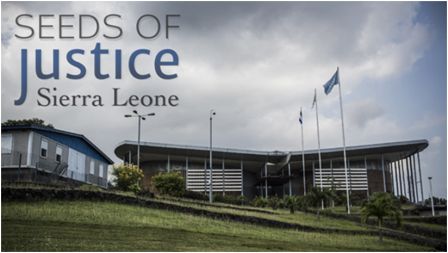Sierra Leone: Apology to Women Victims a Welcome Step
New York – The International Center for Transitional Justice (ICTJ) welcomes the apology given by Sierra Leonean President Ernest Bai Koroma on Saturday to women victims of the country’s 10-year armed conflict that ended in 2002.Â
“With this apology, Sierra Leone took an important symbolic step. A formal apology by the head of state is one of the simplest yet most fundamental measures that a government can take in fulfilling the right to reparations,†said ICTJ President David Tolbert.
Under international human rights law, the right to reparations entitles victims to material benefits as well as symbolic gestures from the State, in an attempt to repair the harm done to them and to acknowledge what they lost or suffered. Previous reparations programs resulting from truth commission recommendations have included combinations of social services, modest pensions, memorials and, in some cases, State apologies.
Many West African governments that undertook official truth-seeking processes, including Ghana and Liberia, have refused to issue formal apologies.
Ruben Carranza, acting director of ICTJ’s Reparations program, said, “President Koroma’s apology to women victims shows that his government is willing to acknowledge the state’s responsibility to victims of the conflict.†He continued, “it is important for the international community to support that gesture, not only by funding the reintegration of ex-combatants, for example, but also by pledging assistance for victims.â€
Going forward, the government should assure women victims of their entitlement to reparations and the willingness of the government to resume the registration process, to identify other potential sources of funding for reparations, and to extend the acknowledgment conveyed by the state’s apology to other victims of the conflict, including children, amputees, and the families of those who were killed.
Background
Sierra Leone is emerging from a 10-year civil conflict marked by intense and cruel violence against civilians, corruption, struggle for control of diamond mines, and recruitment of child soldiers. The war claimed tens of thousands of civilian lives; the number of persons raped, mutilated or tortured is much higher. Women and girls suffered uniquely and children were singled out for abuses.
In July 1999 the Government of Sierra Leone and the Revolutionary United Front rebel group signed the Lomé Peace Agreement and agreed to establish a TRC, which became operational in late 2002. The TRC submitted its final report in October 2004.
The 2004 report of the Sierra Leone Truth and Reconciliation Commission (TRC)—established to investigate the causes of the conflict and identify those accountable—recommended a range of reparations measures for victims, including a formal apology. The government began implementing a reparations program in 2009, using a $3 million grant from the United Nations Peacebuilding Fund (PBF).
In December 2009 ICTJ released a report assessing the first year of implementation of the Sierra Leone reparations program, recommended in the TRC report. In its report ICTJ urged President Koroma’s government to ensure that the program reaches more women victims—particularly those in rural areas, women who endured sexual violence and war widows. Although the government initially estimated that around 5,000 victims of sexual violence would register, by the end of the registration process, only about 3,000 had done so. While it is possible that some women victims of sexual violence had come forward as part of the more than 11,000 who registered as war widows to avoid the stigma associated with sexual violation, it is likely that the relatively short registration process—largely due to a PBF requirement that stipulated that the $3 million used for reparations be spent within one year from its release—excluded many more eligible victims.
About ICTJ
The International Center for Transitional Justice (ICTJ) works to redress and prevent the most severe violations of human rights by confronting legacies of mass abuse. ICTJ seeks holistic solutions to promote accountability and create just and peaceful societies. For more information visit www.ictj.org.
Stay with Sierra Express Media, for your trusted place in news!
© 2010, https:. All rights reserved.




